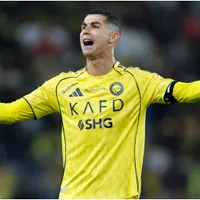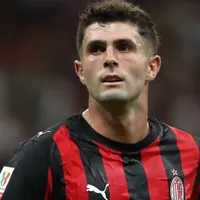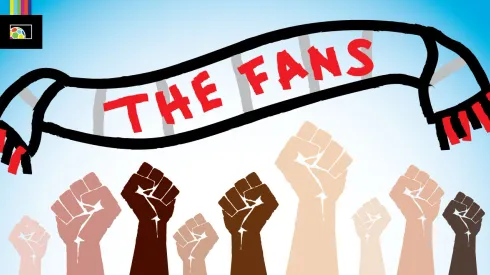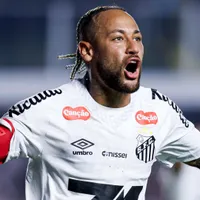Much of modern soccer is largely controlled by big-money owners, such as billionaires and state-backed investment funds. But there are a number of fan-owned soccer clubs – including some big ones – that give power to the people.
These clubs, backed by their members and/or supporters, remain tied to the sport’s working-class, blue-collar roots. Even the individual fan can be a part, often for a minimal investment. In fact, you’re looking at a modest multi-club mogul – this author has been a co-owner/member of three such clubs, on both sides of the Atlantic.
Here are some of the notable fan-owned soccer clubs around the world:
Argentina
Almost all soccer clubs in Argentina are owned by their members. This includes the major clubs, such as Boca Juniors (315,000+ members) and River Plate (281,000+ members).
SV Austria Salzburg
This club was founded by fans in 2005, in protest after the original SV Austria Salzburg was taken over by Red Bull and renamed Red Bull Salzburg.
Other notable clubs in Austria that are member-controlled include SK Rapid Wien and SK Sturm Graz.
Brazil
While private ownership is allowed in Brazil (which has resulted in teams such as Red Bull Bragatino existing), most clubs are member-owned as non-profits. This includes many of the major clubs – among them Flamengo, Fluminense, Palmeiras, Santos, Saõ Paulo, Internacional, Atlético Mineiro, Corinthians, and Grêmio.
HNK Hajduk Split
Ownership of the club is split (excuse the pun) between 30.6% controlled by a fan association, and 65.92% owned by the city of Split itself.
Barcelona SC
The Ecuadorian club, like its Spanish namesake, is controlled by its members.
England & the United Kingdom
There are many supporter-owned clubs in the United Kingdom, mostly occupying the lower tiers of the game. In some cases, these can be “phoenix clubs,” launched after the demise or relocation of a local side. Alternatively, sometimes clubs are created as a protest against the ownership of bigger, historic clubs.
Some of the more notable of these clubs have included Exeter City, Chesterfield FC, AFC Rushden & Diamonds, Bury AFC, Darlington FC, Hereford FC, AFC Wimbledon, and FC United of Manchester. Clubs with partial fan ownership include Accrington Stanley, Luton Town, Norwich City, Swansea City, and York City. Until the famous recent takeover, Wrexham AFC was controlled by a supporters’ trust.
In addition, Scottish teams that are majority fan-owned include Motherwell, Hearts, and St. Mirren. Celtic, Rangers, Dundee, Dundee United, Livingston, and Raith Rovers have partial fan-ownership
SC Bastia
The French Ligue 2 club, based on the island of Corsica, operates as a “cooperative society of collective interest.” Investors own 35% of the club, while the rest is divided amongst supporters, local businesses, communities, and former staff and players.
Germany
One of the most famous examples of fan ownership is in Germany. There, majority control of a club by a single person or entity is banned by law. Either a club itself or its holding company must be controlled by members with a 50%+1 vote. The major exceptions to this rule are Bayer Leverkusen and VfL Wolfsburg, which were founded as works teams for company employees (Bayer and Volkswagen, respectively) many years before the 50+1 rule existed. RB Leipzig arguably circumvents this rule, with membership heavily limited and controlled entirely by Red Bull employees.
But the rest of Germany’s well-known clubs – Bayern Munich, Borussia Dortmund, Eintracht Frankfurt, Schalke 04, Hamburger SV, FC St. Pauli, and so on, are all member-controlled.
Panathinaikos
The Greek club is partially fan-owned, with the Panathenaic Alliance holding a portion of the shares.
Yokohama FC
Formed by supporters in 1998 after a merger between Yokohama Flügels and their local rivals, the Marinos. As a result, Yokohama FC became the first supporter-owned professional sports team in Japan.
Portugal
Many clubs in the country are organized as Sociedade Anónima Desportiva or SAD. Therefore, this gives the members/shareholders the final say on how things are run. Clubs set up in this manner include the “Big 3” – Porto, Benfica and Sporting.
SPAIN
Spain’s major clubs are famously controlled by their members or socios. FC Barcelona, Real Madrid, Athletic Bilbao, and Osasuna are traditional member-based clubs. Most other professional clubs are run as SAD companies, similar to setups in Portugal, which still allows for a measure of fan control.
United States
The United States Soccer Federation Pro League Standards (PLS) specifically outlaw majority fan-owned soccer clubs in the professional divisions. Majority control must be by a single individual with a certain net worth. However, supporter-owned clubs do exist in the lower amateur tiers, and minority fan ownership has emerged in the second and third tiers.
Majority fan-controlled clubs include Bearfight FC of Wilmington (DE), Lansing Common FC, Minneapolis City FC, PDX FC (Portland, OR), and San Francisco City FC.
In addition, partial fan ownership in the pro ranks includes Chattanooga FC, Detroit City FC, and soon, Oakland Roots SC.
Noteworthy in the other football, the American kind, the NFL’s Green Bay Packers are a community-owned non-profit organization. The team is controlled by more than 537,000 stockholders. This structure has allowed one of the most valuable sports organizations in the world to remain based in the 300th-biggest city by population in the USA. The Packers are the only major American sports team that is community-owned.
It can be easy to get depressed when thinking about the modern game. Between state- and corporate-backed takeovers, dodgy sponsorships, and nefarious ideas like the Super League, fans can often seem like an afterthought. However, with clubs like these, controlled by the supporters, the true lifeblood of the sport remains the first focus.















